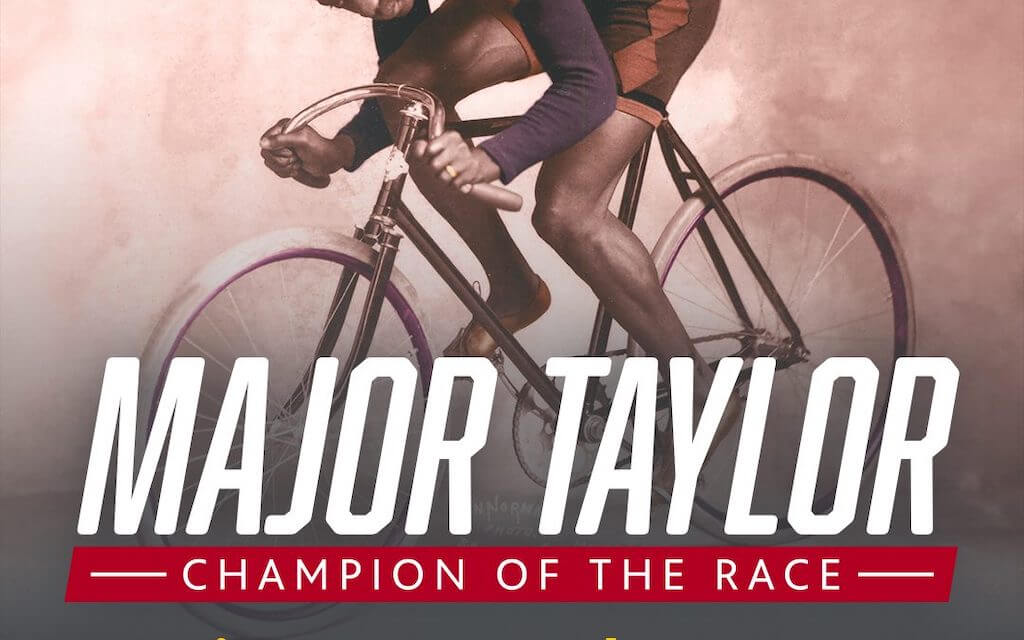Autumn Gear Guide
Find inspiration in our Gear Guide that will keep you out on your bike through wind or rain.
Download NowMajor Taylor was one of the most impressive athletes ever to ride a bicycle, and he broke plenty of world records during his 13-year career as a professional racer. But Taylor was many other things as well: He was a devoted churchgoer, a teetotaler, and an eloquent writer. Taylor was deeply interested in the potential […]
Major Taylor was one of the most impressive athletes ever to ride a bicycle, and he broke plenty of world records during his 13-year career as a professional racer. But Taylor was many other things as well: He was a devoted churchgoer, a teetotaler, and an eloquent writer. Taylor was deeply interested in the potential of both the bike and the automobile, and he yearned to start a business of his own. Taylor competed in the U.S., Canada, Europe, and Australia, and he could speak three languages.
Such a big personality is hard to fit into a single documentary, but producer Todd Gould has done just that. His film, Major Taylor: Champion of the Race premiered on Indianapolis public TV station WTIU in late February. Gould is just the man for the job: He has won no fewer than 20 Emmy Awards, and he handily based in Taylor’s hometown.
“Champion” chronicles Taylor’s unlikely rise to fame, starting with his humble beginnings in 19th Century Indiana. Taylor performs tricks on a bicycle, then shows superhuman potential at local races. Taylor is African-American, and his rivals and detractors are many, but he finds a mentor in “Birdie” Munger, a veteran cycling champion and bicycle manufacturer. Taylor wins one competition after the next, despite his opponents’ verbal abuse and violent tactics on the race course. He gets married; he wins international acclaim; and then, as Taylor ages and Jim Crow hostilities intensify, the mythic rider fades into obscurity.

This story was masterfully told in “The World’s Fastest Man,” a superlative biography by journalist Michael Kranish. To create “Champion,” Gould interviewed a wide variety of experts, from historian David V. Herlihy to Monica Garrison, founder of Black Girls Do Bike. He also amassed an astonishing archive of period images, including photographs, newspaper clippings, and silent reels, which expertly illustrate Taylor’s world. The measured pace is typical of PBS documentaries and works well for such a multi-layered, decades-long story. Even if you have read Kranish’s book, “Champion” adds new layers — and even some surprises — that set the film apart.
The film is recent enough to mention a proposal to posthumously award Taylor the Congressional Gold Medal, a very new development that remains undecided. Whatever the fate of this bill, “Champion’s” long epilogue describes the many ways Taylor continues to inspire riders of all stripes, and particularly cyclists of color. Riding clubs and races routinely take his name, honoring a pioneer who was nearly lost to history. In a moving finale, author Januarie York recites a poem in honor of Taylor. Tragically, the athlete could never have known how much his life story would mean to people, nearly a century after his death. But all this attention in recent decades helps redeem the injustices he suffered. Better late than never.
To watch the documentary for free, visit the WTIU website.
Find inspiration in our Gear Guide that will keep you out on your bike through wind or rain.
Download Now
Leave a comment